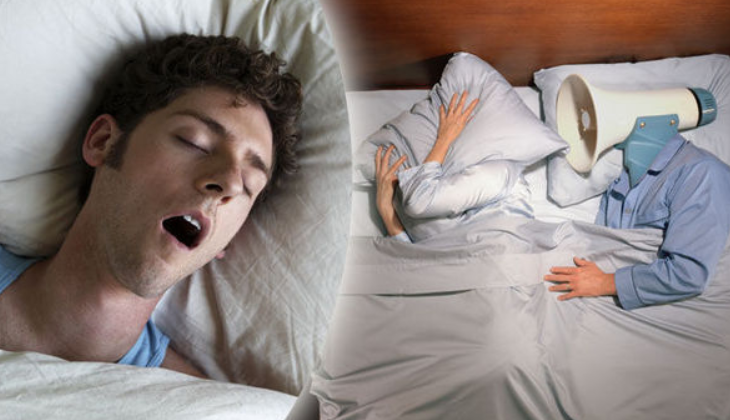

As you might know by now, sleep apnea is one of the most common sleep disorders that many people suffer from. If you're worried that you might have sleep apnea, it is time to check for the symptoms of sleep apnea. However, we will help you with some other diagnoses. Of course, if you suspect sleep apnea, it is better to visit a sleep specialist immediately. But let's give it a try:
If you have a bed partner, or someone sharing the room with you while you sleep, it is easier to figure this out. Most people that snore tend to have some form of obstructive sleep apnea.
Of course, you can try clearing your nasal passageway before you sleep or take something for nasal congestion. If you still experience loud snoring, it is most likely an obstructive sleep apnea condition.
Breathing pauses can happen in both central sleep apnea and obstructive sleep apnea. It is when you're sleeping, but suddenly, your body stops breathing. You might not notice it until you end up with the third symptom. But, if you have a partner, they can probably tell you about it.
Do you often wake up gasping for air or feeling breathless? That's because your breathing muscles might have stopped working. It could also be that your airflow got blocked. In most cases, central sleep apnea is the reason someone wakes up because they stop breathing while they are asleep.
If you have a blood pressure checking machine, then this is the best time to use it. If you're developing obstructive sleep apnea or central sleep apnea, you will often wake up with high blood pressure.
This happens because of improper blood oxygen levels. As a result, you either have high blood pressure or headaches.
Headache happens due to the same reason. The lack of oxygen. However, there can be another reason for it. You might think that you have a complete full night's sleep, while in reality, your body wakes up from time to time to fight breathing problems. This is one of the common symptoms of sleep apnea.
Apart from sleep apnea, snores, and poor sleep quality, you might also face restless sleep. This can happen for many reasons, for instance, if you have consumed coffee, energy drink, or something else that could keep you up at night.
But if that's not the case, then it could be because of blocked breathing or restricted breathing. Your body is trying to rest, but it is failing to find the right position for the best airflow and also for comfortable sleep. As a result, you struggle the entire night.
Despite how much you sleep, you suffer from daytime drowsiness from time to time, alongside a morning headache. This can happen because you definitely have some form of sleep apnea. If you also find yourself being moody, in that your mood changes often, then it is highly likely that you have sleep apnea. Pair all this with trouble concentrating and having trouble sleeping, and you might be looking at sleep apnea.
Temporary obstructive sleep apnea or central sleep apnea can take place when you take medications like sleeping pills or sedatives. It can also happen because you got too drunk. People who smoke also tend to develop some form of sleep apnea.
If you have a family history of sleep apnea, you might have a higher risk, so it is better to get sleep apnea diagnosed. As excessive weight is also the leading cause of sleep apnea, many sleep doctors suggest lifestyle changes and weight loss programs.
If you have a heart disease, then you might most likely develop central sleep apnea.
It is important to treat sleep apnea as soon as you discover it. Continuous positive airway pressure (CPAP) is the main step in treating sleep apnea. However, your sleep doctor might suggest medication or other changes. If not treated, you can develop complex sleep apnea, also known as treatment-emergent central sleep. You are also looking at heart failure, nonalcoholic fatty liver disease, and other medical conditions and serious complications that come with sleep disorders. So, it is high time for you to get diagnosed today.
Leave a comment